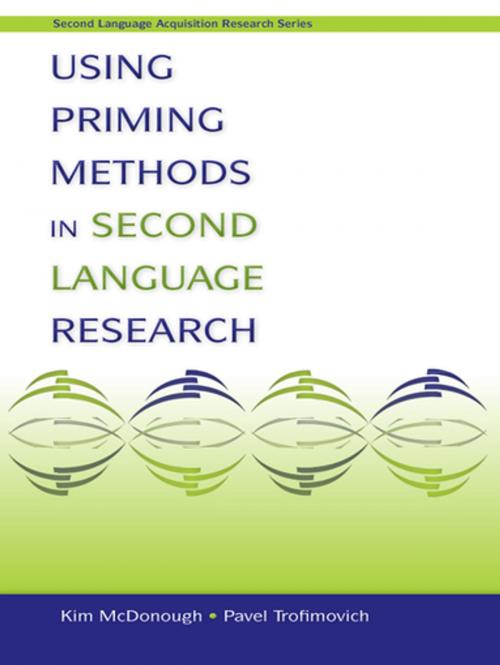Using Priming Methods in Second Language Research
Nonfiction, Reference & Language, Language Arts, Linguistics| Author: | Kim McDonough, Pavel Trofimovich | ISBN: | 9781135593407 |
| Publisher: | Taylor and Francis | Publication: | February 25, 2011 |
| Imprint: | Routledge | Language: | English |
| Author: | Kim McDonough, Pavel Trofimovich |
| ISBN: | 9781135593407 |
| Publisher: | Taylor and Francis |
| Publication: | February 25, 2011 |
| Imprint: | Routledge |
| Language: | English |
Using Priming Methods in Second Language Research is an accessible introduction to the use of auditory, semantic, and syntactic priming methods for second language (L2) processing and acquisition research. It provides a guide for the use, design, and implementation of priming tasks and an overview of how to analyze and report priming research. Key principles about auditory, semantic, and syntactic priming are introduced, and issues for L2 researchers to consider when designing priming studies are pointed out. Empirical studies that have adopted priming methods are highlighted to illustrate the application of experimental techniques from psychology to L2 processing and acquisition research. Each chapter concludes with follow-up questions and activities that provide additional reinforcement of the chapter content, while the final chapter includes data sets that can be used to practice the statistical tests commonly used with priming data.
Using Priming Methods in Second Language Research is an accessible introduction to the use of auditory, semantic, and syntactic priming methods for second language (L2) processing and acquisition research. It provides a guide for the use, design, and implementation of priming tasks and an overview of how to analyze and report priming research. Key principles about auditory, semantic, and syntactic priming are introduced, and issues for L2 researchers to consider when designing priming studies are pointed out. Empirical studies that have adopted priming methods are highlighted to illustrate the application of experimental techniques from psychology to L2 processing and acquisition research. Each chapter concludes with follow-up questions and activities that provide additional reinforcement of the chapter content, while the final chapter includes data sets that can be used to practice the statistical tests commonly used with priming data.















